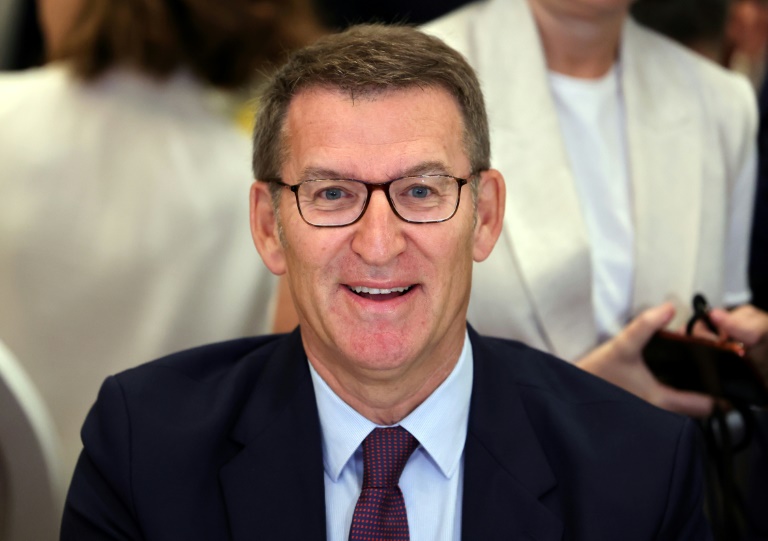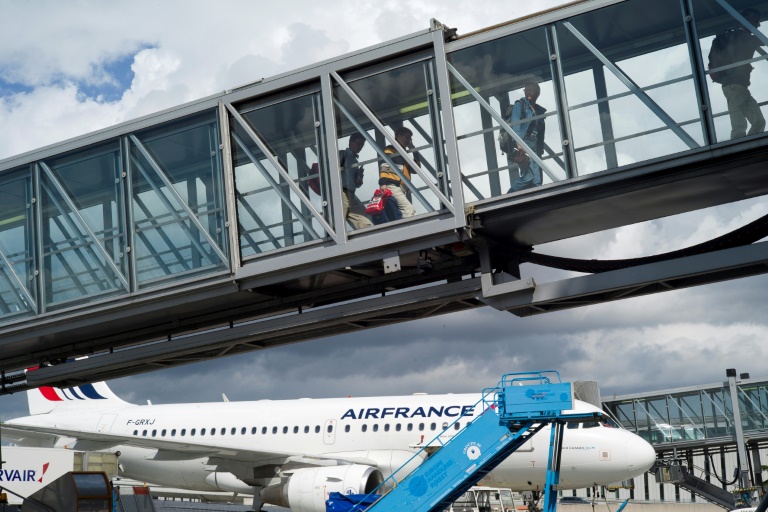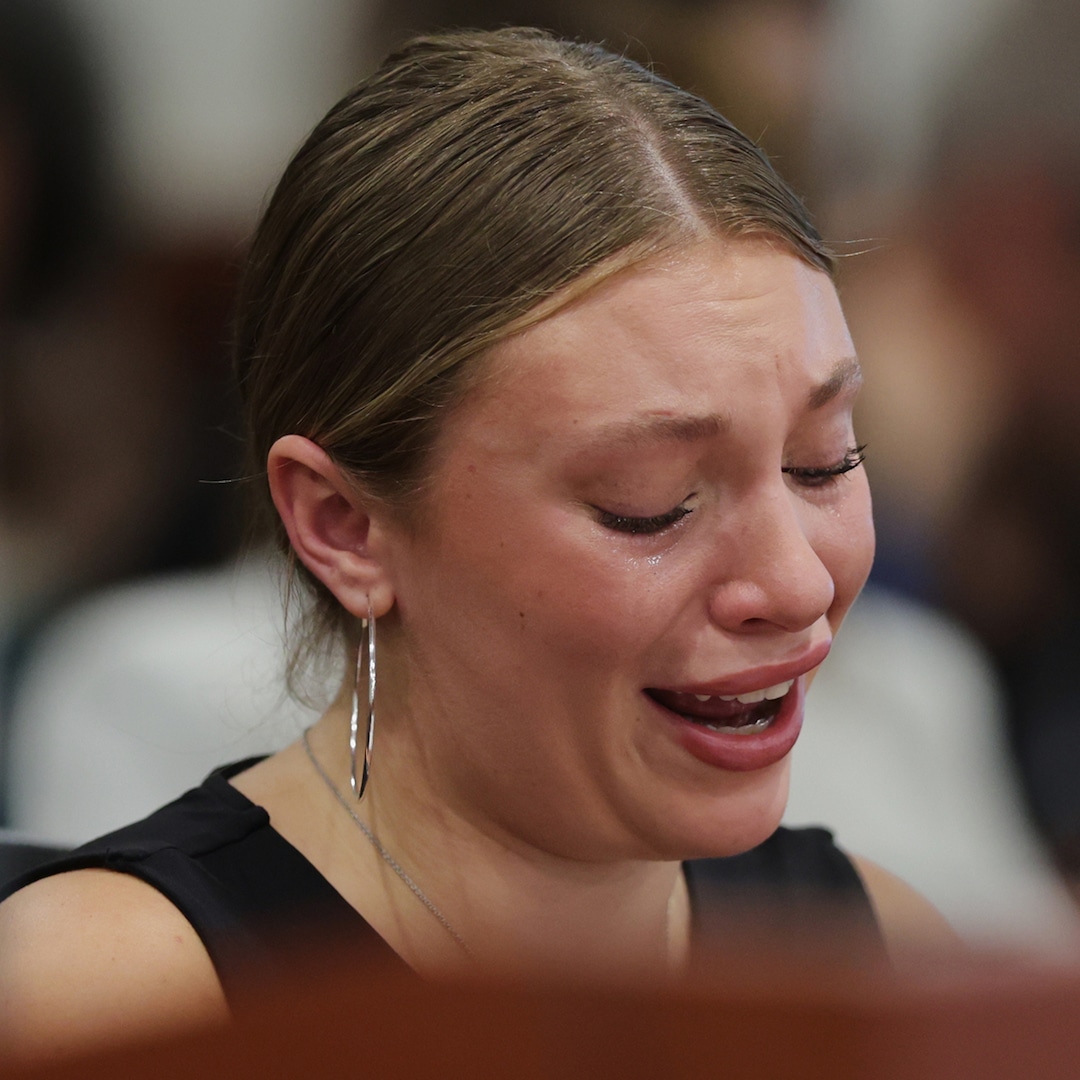AFP
Alberto Nunez Feijoo, whose right-wing Popular Party won Spain’s snap election but without support to form a government, has built his reputation on being a moderate but struggled to square the circle of an alliance with the far right.
A native of Galicia in the rural northwest, the 61-year-old had hoped his moderate stance and dull-but-dependable brand would win over the electorate during Spain’s snap election.
And almost all the polls concurred, while indicating Feijoo’s right-wing party would most certainly need support from the far-right Vox to govern.
So Feijoo turned his sights on Prime Minister Pedro Sanchez with a campaign focused on “overthrowing Sanchismo” which would upend many of the Socialist leader’s policies, while promising he would be a steady hand on the tiller.
Sanchez, by contrast, staked everything on warning about the dangers of a PP-Vox government.
And the strategy appeared to work: although Feijoo’s PP won, it fell far short of the numbers expected and was unable to form a majority, even with the support of Vox.
It was a bitter pill for a politician who until last year spent all his political career in Galicia where he was first elected regional leader in 2009 with an absolute majority — a feat he would go on to repeat three more times.
When he took over as head of the PP in April 2022, he was hailed as a pragmatic moderate and a safe pair of hands to lead a party recovering from one of the worst internal crises in its history.
“Feijoo is very predictable, he likes to show off his transparency and present himself as a reliable, trustworthy politician,” said Fran Balado, a Galician journalist and author of the book “Feijoo’s Journey” (2021).
“He’s a moderate because he manages to attract progressive voters and he’s a pragmatist whom people trust,” he told AFP.
In the weeks leading up to the vote, questions resurfaced about Feijoo’s ties with Marcial Dorado, a notorious tobacco smuggler involved in extensive money laundering who was later convicted for drug trafficking.
The issue first came up in 2013 after El Pais published photos of them in the mid-90s on Dorado’s boat and on holiday in Ibiza and the Canary Islands when Feijoo headed Galicia’s health service.
At the time, Feijoo said he “knew nothing about (Dorado’s) activities”, insisting they didn’t have “a close friendship”.
But fellow Galician Yolanda Diaz, head of the radical-left Sumar, challenged his assertion of innocence just before the vote, saying: “Tell us what you were doing with Marcial Dorado when all of Spain knew who he was.”
Born on September 10, 1961, in the village of Os Peares, Feijoo grew up in a working-class family to a father who worked in construction and a mother who ran a grocery shop.
A studious child, he read law in Santiago de Compostela, hoping to become a judge. But when his father was left jobless, he pitched in to help, becoming a civil servant in 1985.
It was in 1991 that he first got his foot on the political ladder, taking a job at Galicia’s agriculture ministry with a politician who later became Spain’s health minister and took Feijoo with him to Madrid in 1996.
There, Feijoo ran Insalud, Spain’s national health service at the time. In 2000, he took over as head of the Correos postal service. Three years later, he returned to Galicia and in 2006, became the PP’s regional head there, later leading it to victory in 2009.
Despite saying his “highest political ambition” was to be Galicia’s leader, the village boy from Os Peares packed his bags and moved to Madrid last year, hoping to become “the first prime minister from rural Spain”.
Despite his years in politics, Feijoo has no experience of international diplomacy and like most Spanish premiers — Sanchez being the exception — he does not speak English, raising eyebrows earlier this year after referring to US rock legend Bruce Springsteen as “Bruce Sprinter”.
Normally very guarded about his private life, he spoke to El Mundo’s
Yo Dona woman’s magazine in March about becoming a father in his mid-50s with his partner Eva Cardenas, saying it was the “best gift life has given me”.
“I didn’t want children before.. (but) I’m very happy to have had a son just before the final whistle,” said Feijoo, who can be seen walking through Madrid’s Chamartin district with his son Alberto, 6, and their schnauzer Cata.
Diplomatically described as “rather austere”, Feijoo told the magazine he was a “neat-freak and perfectionist” who will ring his mum Sira if he’s had “a bad day”.
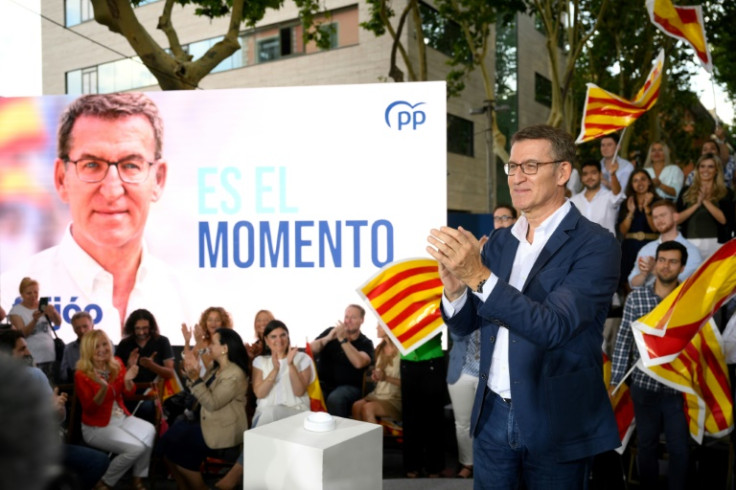
AFP
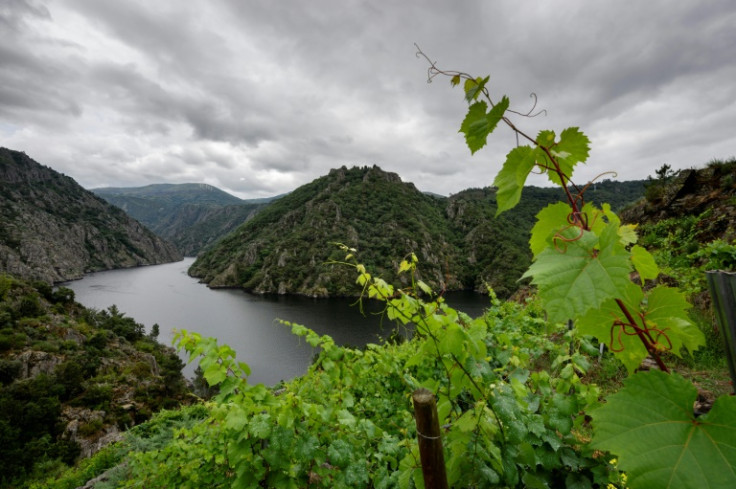
AFP
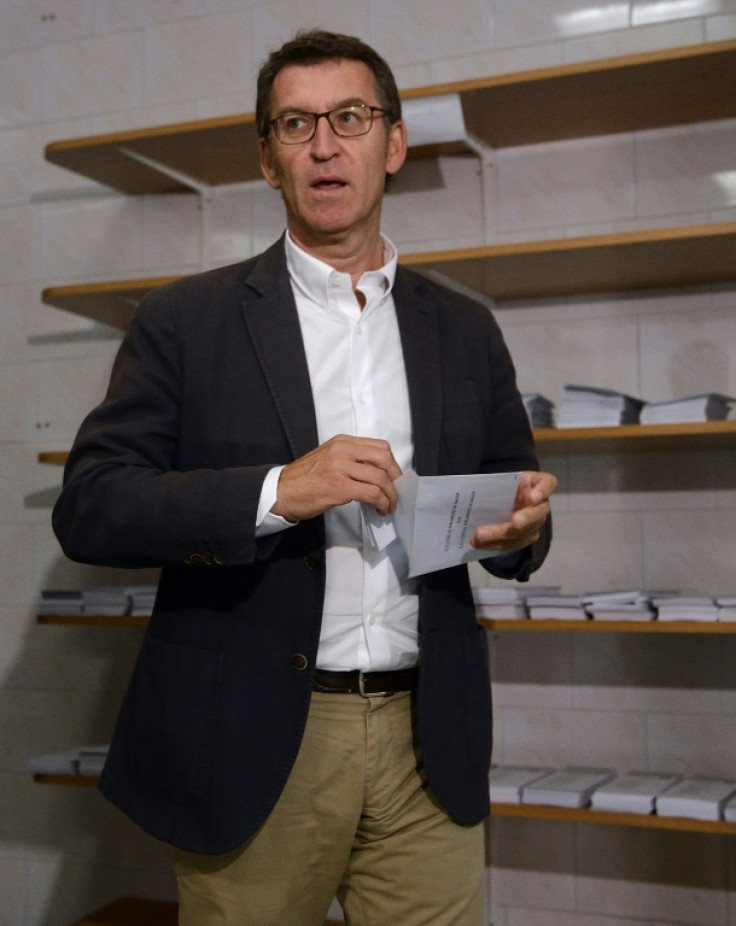
AFP

